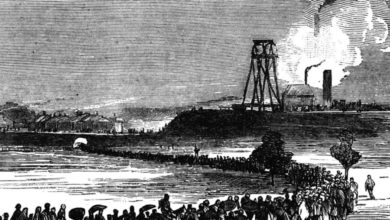The Day the Ocean Turned Black: Remembering the Exxon Valdez Disaster
On March 24, 1989, one of the most devastating environmental disasters in U.S. history occurred when the Exxon Valdez oil tanker struck Bligh Reef in Prince William Sound, Alaska, spilling millions of gallons of crude oil into the pristine waters. This incident marked a pivotal moment for environmental policy and awareness and highlighted the dire consequences of human negligence on natural ecosystems.
The Exxon Valdez, a massive oil tanker, was navigating through Prince William Sound when it collided with Bligh Reef. The collision ruptured its hull and released approximately 11 million gallons of crude oil into the ocean. The spill covered an area of about 1,300 miles, affecting the coastlines with a thick, toxic sludge that had devastating effects on wildlife, marine life, and the local economy.
The environmental impact of the Exxon Valdez oil spill was catastrophic. Thousands of animals, including seabirds, otters, seals, and whales, died as a result of oil contamination. The spill disrupted the food chain and damaged breeding grounds, leading to long-term ecological consequences that the region is still recovering from decades later. Moreover, the spill severely affected the local fishing industry, a vital livelihood source for many Alaskan communities. The contamination of fish and shellfish stocks led to fishing bans and significant economic losses for fishermen and related businesses.
The cleanup effort for the Exxon Valdez spill was massive, involving thousands of workers, billions of dollars, and several years to complete. Despite these efforts, the recovery was slow, and the full extent of environmental restoration remains incomplete. The spill exposed significant shortcomings in the readiness and response strategies for oil spill disasters, prompting a reevaluation of safety protocols, regulatory measures, and environmental protection policies.
In response to the disaster, the U.S. Congress passed the Oil Pollution Act of 1990, which strengthened regulations on oil transportation and required tankers to have double hulls. The act also established a fund for oil spill cleanup and compensation for damages. The Exxon Valdez incident served as a wake-up call for stricter environmental safeguards and more responsible corporate practices.
Today, the Exxon Valdez oil spill serves as a sombre reminder of the fragile balance between industrial activity and environmental conservation. It underscores the importance of vigilant regulation, preparedness for environmental emergencies, and the need for ongoing efforts to protect and preserve natural habitats and wildlife. The legacy of the Exxon Valdez continues to influence environmental policy and activism, inspiring a more significant commitment to safeguarding the planet for future generations.





